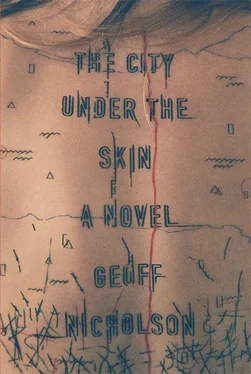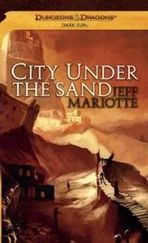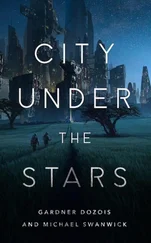He couldn’t tell if Billy Moore was looking at him with grudging admiration or confusion or contempt.
“Let me show you something,” said Zak.
He took the cylindrical leather map case from a drawer in his desk and removed the Jack Torry map, unrolling just a couple of feet of it.
“Take this map here,” said Zak. “You couldn’t use it to get anywhere, but you could use it to learn about certain events.”
“Like what?” said Billy.
“It shows where certain rapes occurred. So it’s only partly a map concerned with place: it’s more of a map concerned with recording actions.”
“Who’d want a map like that?”
“Some people just do.”
“Sick fucks?”
“Not always,” said Zak. “But let me try a less loaded example.”
Putting away the Torry map, Zak crossed the store and pointed out a framed eighteenth-century map of Greenland, or Carte de Groenland , according to the uneven italic script along its lower edge. It was a copper engraving with an elaborate cartouche, bright coloring, not large, not really all that valuable.
“Let me tell you about Greenland,” Zak said. “Let me tell you about Alfred Wegener.”
Billy looked at him suspiciously.
“Don’t worry. It’s not rocket science. It’s barely even cartography.”
Billy was not immediately reassured.
“Alfred Wegener was a meteorologist who spent a lot of time looking at maps. And one day he looked at all the ins and outs of the Americas and he saw how they could be fitted into all the outs and ins of Europe and Africa. And he came up with this wild idea of continental drift.
“Everybody thought Wegener was crazy. Maybe he even had some doubts himself. But then he went on an expedition to Greenland, and while he was there, he kept looking at old maps, and he made some new maps of his own. Then he compared the two, checked the longitude and latitude of the coast, and he calculated that over the previous hundred years — between the making of the old maps and his new one — the coast had moved a whole mile, which is a colossal amount of movement for a landmass. This was great news for Wegener. As far as he was concerned, this was absolute proof that his continental drift theory was right.”
“Yeah?” said Billy Moore.
“And the continental drift theory is right, more or less. But Wegener was completely wrong about the coast of Greenland. It hadn’t moved at all. It was right where it had always been. Wegener was a better mapmaker than his predecessor, that’s all. The old map had simply been inaccurate; it had put the coast of Greenland in the wrong place by one mile.”
“Okay. I get it, I think,” said Billy. “Or maybe I don’t. What are you telling me?”
“I’m telling you that the inaccuracy didn’t matter. The old map was ‘false,’ but it showed Wegener something that turned out to be true.”
“And that’s a big deal?”
“It can be,” said Zak. “Take those maps tattooed on the women. We don’t know what they mean. Maybe they’re maps of real places, maybe they’re not. Who knows? But they’ve got to be a map of something . Maps always mean something to somebody, and they always mean more to some people than to others.”
Billy stared at the map of Greenland, thinking about what Zak had said, and thinking about much else.
“So you don’t know a damn thing about these maps on the backs of those women?” he said.
“No,” Zak admitted.
“You don’t know who did them or why. You don’t know what they mean to Wrobleski or why he needs these women taken to him. Or what he’s going to do with them.”
“I’m afraid not,” said Zak. “I was hoping you did.”
“So correct me if I’m wrong: for all your knowledge about maps and meanings and continental drift, you don’t know any more than I do.”
“Well…” said Zak.
Billy Moore’s cell phone rang. He saw it was Akim, and he knew that his lesson in cartography was over.
“Zak,” Billy said, “maybe you aren’t any smarter than you look.”
Zak was left with his phone and his list of customers. He wondered when, if ever, it would be appropriate to try getting in touch with Marilyn. Probably he should wait for her to call him. Maybe he could distract himself by doing a little research into the history of the Telstar Hotel.
That night, Marilyn returned alone to the Grid. Although Zak had said he sometimes went there to lick his wounds, and he surely had plenty to lick now, he wasn’t there, and she was relieved. Sex complicated everything. She probably shouldn’t have taken him back to the Telstar. She wondered how long it would be before he called her: too soon, she was sure.
The place was a lot less welcoming and a lot more crowded than when she was there the first time: there was nowhere to sit. She bought herself a drink and took up a spot standing, wedged in by the piano, where she could listen to Sam, who was now playing something melancholy and formless and, she assumed, improvised. She found that encouraging. She dropped a couple of bills into his tip jar, and when he took a break, she offered to buy him a drink. Funny how if you’re a young woman and you offer to buy a drink for some guy and say you’re really interested in his work, he can be surprisingly willing to talk to you. He slid along the broad piano stool so Marilyn could sit next to him.
“My friend tells me you used to be a cop,” Marilyn said.
“Who’s your friend?”
“Zak Webster. Map guy. Comes in here once in a while.”
“I don’t remember names,” Sam said. “Or faces.”
“Wasn’t that a problem when you were a cop?”
“It was the least of them.”
“You were one of those profiler guys, right?”
“Aren’t you the little Nancy Drew?”
“Seriously, can I ask you a question, Sam?”
“Don’t tell me you’re a writer? Journalist? Documentary filmmaker?”
“No, no,” she said quickly. She was ready with a lie or two she’d worked out. “I’m an actress.”
He looked her over. Yes, he could believe she was an actress, though he couldn’t believe she’d ever be a very successful one.
“I’m working on a part,” Marilyn explained quickly.
“Lady Macbeth?”
On another occasion she’d have been prepared to be insulted, and to deliver an insult in return. Instead, she said, “No, it’s a brand-new play. It’ll be the premiere. We’re workshopping it, doing some improvisation. So I need some background.”
“You’re playing a cop?”
“No, I’m playing the murderer.”
He smiled at her just a little condescendingly and said, “You don’t look the type.”
“Well, that’s the whole point.”
“So, what do you want? Help with your motivation?”
He exhaled a small snort of ridicule.
“What’s wrong with that? Don’t cops try to work out motivation?”
He snorted again, but he didn’t argue.
“The thing is,” said Marilyn, “I can totally understand why people kill people. That seems the easy part. But I want to know what they do next.”
“What does your playwright say?”
“That’s the problem. He keeps changing his mind, doing rewrites, so I’m trying to give him some input.”
“He’ll love that,” said Sam, and ran his fingers along the keyboard, played some suspended chords, then a few cop show stabs and arpeggios.
“Some people just shrug it off,” he said, “and they get on with their lives like it never happened. No guilt, no remorse. Nothing. I guess we call them sociopaths. Or psychopaths. I can never remember which is which. They can both be pretty hard for the cops to catch.”
Читать дальше












